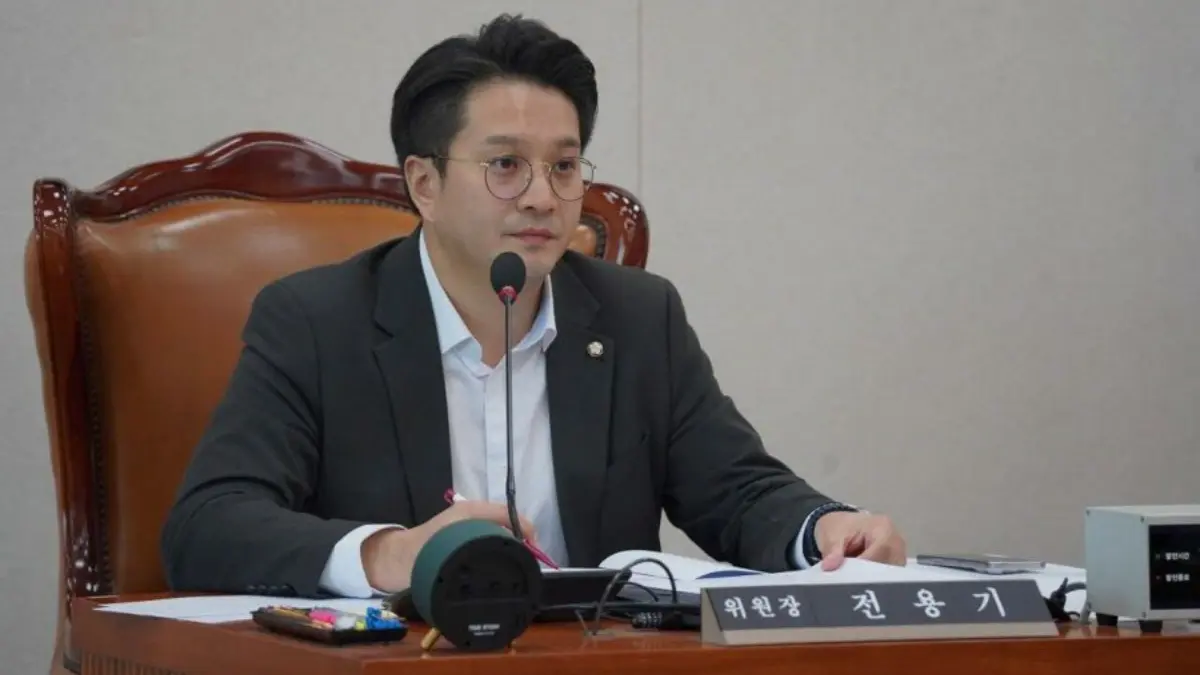South Korean National Assembly member Jeon Yong-gi has publicly condemned the sustained cyberbullying campaign against professional League of Legends player Lee “Gumayusi” Min-hyeong. In a formal statement, the Democratic Party lawmaker called on the Korea eSports Association, Riot Games Korea, and esports organizations to stop acting as bystanders and take concrete measures against organized online harassment.
Jeon specifically pointed to “T1 Gallery” on DC Inside, a community forum nominally for T1 fans, as a central hub for coordinated abuse targeting the ADC player. The statement comes after months of harassment that continued even after Gumayusi helped T1 win the 2024 World Championship, earned Finals MVP honors, and subsequently signed with Hanwha Life Esports.
Guma antis/T1Gall/티응갤 master thread to make things easier for those who are just now finding out about their actions from streamers covering their recent act of sending funeral wreaths to T1 demanding T1 to be removed:#Protect_Gumayusi #구마유시 https://t.co/e1mebEEPpC
— 🫠 REST (@tachycardial) August 9, 2025
Jeon Yong-gi framed the case as part of Korea’s broader cyberbullying crisis in entertainment and sports. He emphasized that what happened to Gumayusi goes beyond normal fan criticism into persistent personal attacks, doxxing attempts, and coordinated harassment campaigns.
T1 Gallery became notorious throughout 2024 for intense campaigns against Gumayusi during a difficult season where he was benched at times for rookie ADC Smash. The harassment escalated beyond performance criticism into personal attacks that tracked his offline movements and labeled him a “traitor” after leaving T1 as a free agent.
What made Jeon’s intervention notable is the timing. The abuse didn’t stop after vindication. Gumayusi delivered at Worlds, earned the Finals MVP trophy, and moved to a new team. Yet the harassment from T1 Gallery persisted, proving this was no longer about on-stage performance.
Jeon directed his demands at three key entities. He urged KeSPA to treat cyberbullying as a player welfare and integrity issue requiring guidelines and regulations. He called on Riot Games Korea to use league rules and disciplinary frameworks to protect players. He pressed esports organizations, including T1 and other LCK teams, to publicly condemn harassment and monitor their branded community spaces.
The lawmaker has been working on anti-cyberbullying legislation since taking office in 2020. He previously led efforts to abolish public comment sections on Korean sports news articles and recently proposed a bill targeting “cyber wreckers,” a Korean term for malicious online slanderers. His proposals aim to shift responsibility onto platform operators like DC Inside, not just individual perpetrators.
T1’s response to fan extremism has drawn criticism. The organization has faced protest trucks, funeral wreaths, and death threats aimed at various players and staff over the years. In Gumayusi’s case, critics point out that T1’s COO held a public conference with T1 Gallery members, effectively treating them as legitimate stakeholders rather than distancing the organization from their behavior.
sending funeral wreaths to t1 in 2024 summer, criticizing gumayusi for "not exerting enough effort" and coaches for not "giving feedback to gumayusi and not giving mental care to other players" (they're proud of this, it's in their gallery intro post) pic.twitter.com/YpOF0mRGzH
— 🫠 REST (@tachycardial) August 10, 2025
Korea’s entertainment industry has seen multiple high-profile cases where celebrities died by suicide after prolonged online abuse. The pattern repeats in sports and now esports. Strong defamation laws exist, but enforcement remains inconsistent due to anonymous posting, platform reluctance, and sheer harassment volume.
Gumayusi’s situation during 2024 was particularly brutal. He fought to stay in T1’s starting lineup amid domestic struggles, faced psychological exhaustion requiring extensive counseling, and later described it as his most difficult year mentally. He pushed through to help deliver a World Championship, only to have the harassment continue into his new chapter with HLE.
The statement puts pressure on multiple entities to respond. KeSPA, Riot Korea, and DC Inside now face questions about what concrete actions they’ll take. Whether this leads to policy changes or remains symbolic will determine if Korean esports learns from other entertainment sectors or repeats their mistakes.

